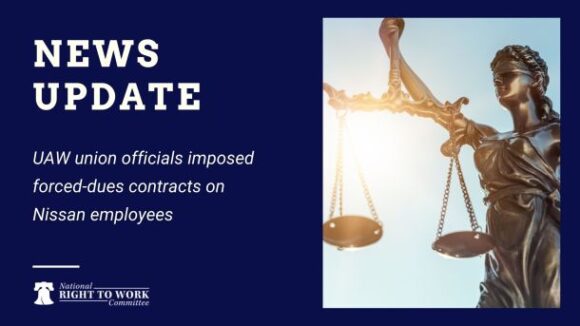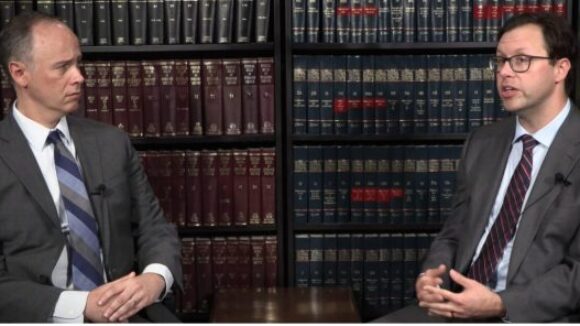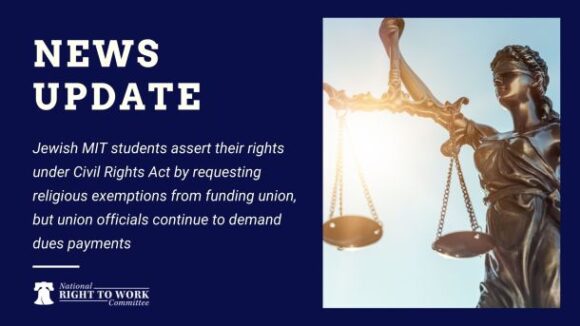Somerset, NJ, Nissan Parts Distribution Center Employees File Petition for Vote to Kick Out UAW Union
UAW union officials imposed forced-dues contracts on Nissan employees
 Union Lawyers Count on High Court to Ignore a Plain Fact: Monopoly Bargaining Benefits Some Teachers at Others’ Expense
Union Lawyers Count on High Court to Ignore a Plain Fact: Monopoly Bargaining Benefits Some Teachers at Others’ Expense
Thanks largely to the determined and persistent efforts of National Right to Work Committee members and supporters and their allies, today public employees in more than half of the 50 states are legally protected from forced financial support for unions. To be precise, this means that employees who refuse to join the union that wields monopoly-bargaining power in their workplace can thereby refuse to pay dues or fees to that union.
Normally, employees who resist bankrolling their union monopoly-bargaining agent are motivated by a belief that the union hierarchy is acting contrary to their interests.
This is, indeed, a key reason why the plaintiffs in Friedrichs v. California Teachers Association, a case the U.S. Supreme Court is now considering whether or not to hear, are aiming to get a definitive judicial ruling that the payment of compulsory union dues or fees to a government union as a condition of public employment violates the First Amendment and is thus impermissible in any state.
The Friedrichs case is built primarily on precedents argued and won by National Right to Work Legal Defense Foundation attorneys on behalf of their independent-minded employee clients over the course of many years. And just this February Foundation attorneys petitioned, as amici curiae, the High Court to hear Friedrichs.
In a brief originally submitted to a federal court in central California two year ago, and appended to their petition to the Supreme Court this year, the Friedrichs plaintiffs explain why it is “clear” that having union officials act as the monopoly-bargaining agent with the school district on workplace matters “does not serve the interests of all teachers.”
For example, “‘seniority’ protections and other employment protections advocated by unions benefit some teachers at the expense of other teachers who would fare better under an alternative system.”
It is logically impossible to deny that teacher union-boss favored pay schemes in which earnings are based solely on years of experience and post-graduate credits and degrees, regardless of their relevance to teachers’ work, hurt outstanding teachers with less seniority and fewer paper credentials.
Moreover, Big Labor bosses’ exercise of their monopoly-bargaining privileges to prevent school districts from offering disability insurance as part of their teacher compensation package so that teachers who believe they need such insurance will have to join the union to obtain it obviously does not “benefit” those who prefer not to join.
However, judging by the brief that lawyers for the California and national teacher union hierarchies have submitted to the High Court urging it not to take up the Friedrichs case, their hope is that the justices will simply disregard how monopolistic unionism economically harms many teachers and assume all the plaintiffs benefit, as they put it, “financially from union collective bargaining.”
Instead of addressing the inconvenient facts cited in the plaintiffs’ briefs, teacher union lawyers are effectively urging the Supreme Court to look the other way and stand by the unexamined assumption it made 38 years ago in Abood v. Detroit Board of Education: that is, the assumption that workers who don’t want a union nevertheless somehow “benefit” from being under union control.
It was only by making this assumption that Justice Potter Stewart and the five other justices who joined in his Abood majority opinion in 1977 were able to give forced fee-hungry government union bosses a green light, under certain conditions, to “interfere” with “an employee’s freedom to associate for the advancement of ideas, or to refrain from doing so, as he sees fit,” as the opinion itself acknowledged.
Today it is plain to see that what the Abood court authorized in practice was forced union fees for harmful “representation.” And late last month, the Supreme Court asked California’s attorney general to respond to the Friedrichs plaintiffs’ argument that Abood should be overturned. According to eminent pro-Big Labor legal pundit and Harvard law professor Ben Sachs, this shows “a number of Justices think this case is serious enough to warrant learning more.”
Coaxing the High Court to stick by a now-discredited assumption it made nearly four decades ago may thus turn out not to have been a winning strategy for teacher union lawyers. If the Supreme Court disregards their wishes and takes up the Friedrichs case, it will be interesting to see what they try next.

UAW union officials imposed forced-dues contracts on Nissan employees

A new federal lawsuit from a National Right to Work Foundation-backed Starbucks employee, currently pending at the D.C. District Court, could upend the federal agency and result in a ruling that the current Labor Board’s structure violates the Constitution.

Jewish MIT students assert their rights under Civil Rights Act by requesting religious exemptions from funding union, but union officials continue to demand dues payments